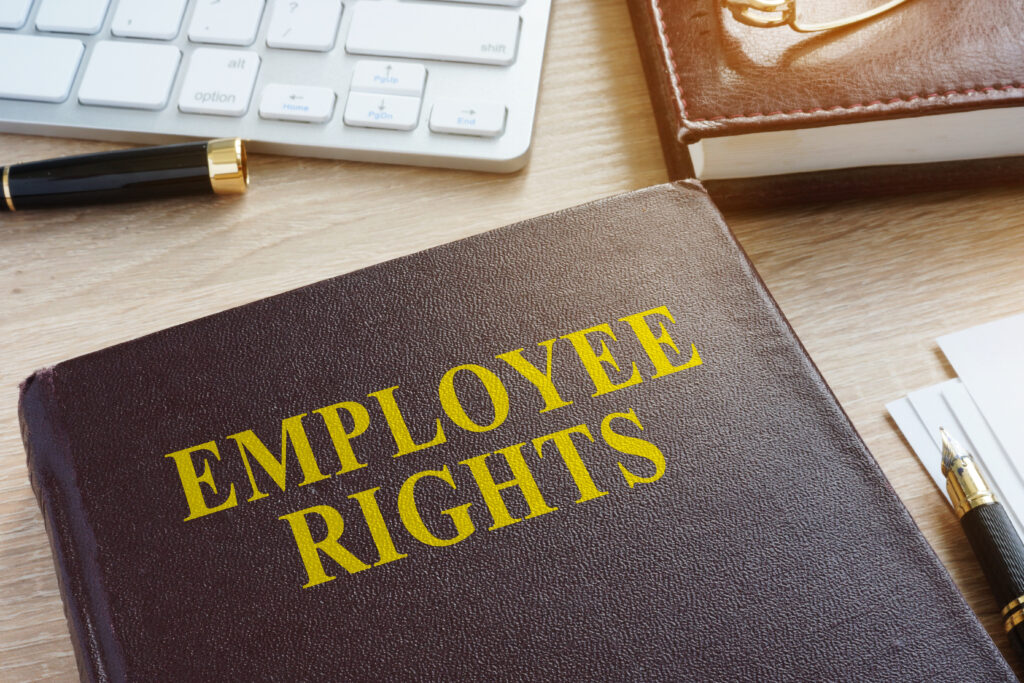At President Trump’s second inauguration, the President and First Lady shared an awkward “air kiss”. Between colleagues in the workplace, this action has the potential for more serious consequences. In a recent case decided in the employment tribunal, the judgment has provided a crucial insight into what actions might qualify as sexual harassment in a work setting, especially when there are contradictory statements of fact.
Case background
In Ms. J. Chen v. Cut Your Wolf Loose Limited & Others, the Claimant, Ms Chen, was employed in a specialist whisky bar and shop in Brighton and had worked for the bar from the day it opened in September 2021. Ms Chen was hired partly due to her extensive knowledge of fine whisky.
Ms Chen had an openly positive working relationship with her manager, Mr de Newtown, who sometimes walked her home after work. This relationship remained positive for a significant duration of her employment, but eventually deteriorated following tensions between the Claimant and other bar staff. In April 2022, the Claimant resigned in response to alleged mistreatment, but was allowed to rescind her resignation by the bar owner, Mr Woolf. Problems escalated when the Claimant was given a formal warning by Mr Woolf in September 2022 for allegedly leaving the store unattended and serving alcohol to minors, and she was ultimately dismissed later the same month after refusing to attend a disciplinary hearing. On the evening after her dismissal, Ms Chen attended a whisky tasting event at the bar and repeatedly asked Mr de Newtown for whisky recommendations, each of which she rejected.
Tribunal Claim
Ms Chen filed claims of race harassment, unfair dismissal, and sexual harassment against the whisky bar and Mr de Newtown as the second respondent. The sexual harassment claim focused on two incidents in 2021 in which the Claimant alleged that Mr de Newtown walked her home from work and kissed her neck passionately. Mr de Newtown strongly denied the allegations and described the gestures as friendly air kisses with no sexual intent.
Issues under consideration
Under the definition of harassment in the Equality Act, the key issue for the tribunal to consider was whether the conduct of Mr de Newtown was unwanted conduct of a sexual nature which had the purpose or effect of violating dignity or creating an intimidating, hostile, degrading, humiliating, or offensive environment for the Claimant.
Harassment is assessed according to the perspective of the subject of the alleged mistreatment, so Ms Chen’s manager did not need to intend any harassment in order for her claim to succeed. However, the alleged impact on the Claimant also had to be reasonable, considering the offending gesture: if Mr de Newtown kissed the Claimant, it had to be objectively reasonable for this gesture to have the effect of violating the Claimant’s dignity or creating an offensive environment.
Tribunal judgment
The tribunal faced challenges in evaluating the sexual harassment claims due to the evidence of the parties being directly contradictory. The claimant stated that her manager kissed her passionately and intimately, while Mr de Newtown said he gave her an innocent air kiss.
The Claimant failed to justify the alleged impact of her manager’s actions, and her account contained a number of inconsistencies, particularly in relation to the date she first voiced her concerns. The Claimant attributed the delay in her report to a fear of losing her employment, but her delayed reporting and continued positive relationship with her manager ultimately undermined her credibility as a witness. The Claimant’s actions and relationship with Mr de Newtown after the incidents also weakened her claims: the tribunal viewed her attendance at the whisky tasting event on the day of her dismissal as motivated by a desire to humiliate Mr de Newtown in front of the bar’s customers.
On balance, the judge found Mr de Newtown to be a more reliable witness than the Claimant, and considered his testimony more accurate. The tribunal decided that Mr de Newtown probably gave the Claimant an air kiss after hugging her, which she misinterpreted as a romantic gesture. The judge ruled that even if Mr de Newtown’s kiss was sexually motivated, it was not objectively severe enough for it to meet the legal definition of harassment. As a result of the tribunal’s findings, the Claimant’s sexual harassment claims were dismissed.
Lessons for Employers
The case highlights the difficulty in evaluating sexual harassment claims in the absence of corroborating witness evidence. In such instances, a tribunal must assess credibility based on circumstantial factors that may be disadvantageous to claimants.
Sexual harassment does not have to constitute physical touching to meet the legal test, and may include sexual jokes or gestures, spreading rumours, questions about a person’s love life and posts or contact on social media. It is also possible for harassment to occur outside the workplace or working hours, including at work-related events.
In this case, the Claimant’s claim failed partly due to her failure to report the incidents to senior management or external authorities at the relevant time. Her fear of retaliation was insufficient mitigation of the requirement to report concerns and provide evidence of misconduct. It is possible that isolated misinterpretations of social gestures, especially in informal work environments, may lead to ongoing problems or grievances, particularly in small organisations with a multi-cultural workforce. The case highlights the necessity of robust and anonymous reporting channels within organisations, whereby employees feel empowered to raise concerns without fear of reprisal.
Conclusions
Encouraging an environment wherein employees feel safe reporting harassment is crucial. Employers should also consider the duty to take reasonable steps to prevent harassment and lead on the issue by assessing the risk of harassment in the workplace and initiating training on the relevant issues. Employers should implement comprehensive anti-harassment policies that clearly outline unacceptable behaviour, reporting procedures, and the consequences of violating company policy. In responding to allegations of harassment, employers should promptly conduct a full and impartial investigation before initiating any disciplinary procedures, maintaining clear records to ensure disputes are resolved appropriately.
For more information on the contents of this article or advice on the issues raised, please contact us to speak to a member of our Employment team.










